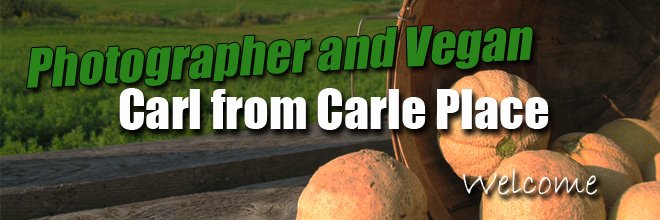What is a Vegan?From the Vegan Outreach Website:
Excerpt:
People are interested in veganism for the same reasons as vegetarianism -- not participating in practices that cause suffering, supporting more environmentally-friendly and sustainable agricultural practices, and improving their health.
With such a diversity of reasons, it is not surprising that there are many definitions of veganism. Like other philosophies, the specific meaning of vegan varies from person to person. A plurality of people who call themselves vegetarian state that their motivation is health, but the majority of vegans state ethics as the primary reason for their chosen lifestyle. An ethical vegan realizes that not only can animals suffer, but they also value their lives in many of the same ways as humans. Thus, animals are neither tools nor objects for our use, but rather individuals with inherent worth. From this understanding follows a set of specific actions; namely, choosing products that do not require using animals. Or, by the more common definition, not eating meat, dairy, or eggs; not buying leather or wool; trying to avoid products made by companies that test on animals. Beyond this basic definition, each individual has different opinions about and experiences with being vegan; there is no set list of rules to follow.
By not consuming the products that come from animal exploitation, each individual is making a statement against inhumane practices, undertaking an economic boycott, and supporting the production of vegan products with their subsequent choices. These decisions, and the message they send to others, help to move society away from industries that use animals as a means to human ends.
Although the end goal is generally the same, the path an individual takes towards veganism is a unique one. Some people follow a methodical process of cutting out foods in the order that they consider to be the most cruel, or the foods they find the most easiest to avoid. Others initially concerned with health eventually cut out "healthy" products (chicken and fish, low-fat dairy products) as they become more aware of the suffering involved in the production of these goods. Others go "cold-tofu," giving up all animal foods, donating their leather goods to charity, returning their Procter & Gamble products to the company, etc.
Vegan : The New Ethics of Eating by Erik Marcus.
A fresh look at issues addressed a decade ago by Frances Moore Lappe (Diet for a Small Planet), Vegan: The New Ethics of Eating shines a strong light on the unhealthful, inhumane, and destructive aspects of the typical American diet. Vegan is packed with documented research, nutritional information, and telling photos. Features leading heart specialist Dean Ornish, M.D. Forward by Howard Lyman, Humane Society of the U.S.

No comments:
Post a Comment